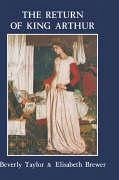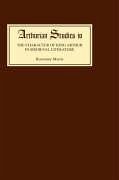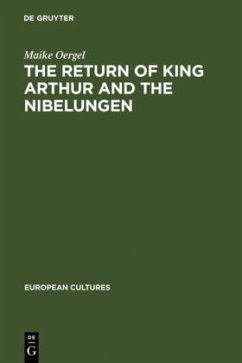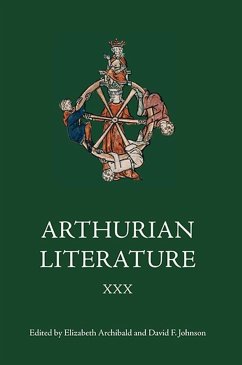Nicht lieferbar

Return of King Arthur British and American Arthurian Literature Since 1800
Versandkostenfrei!
Nicht lieferbar
The revival of interest in Arthurian legend in the 19th century was a remarkable phenomenon, apparently at odds with the spirit of the age. Tennyson was widely criticised for his choice of a medieval topic; yet The Idylls of the Kingwere accepted as the national epic, and a flood of lesser works was inspired by them, on both sides of the Atlantic. Elisabeth Brewer and Beverly Taylor survey the course of Arthurian literature from 1800 to the presentday, and give an account of all the major English and American contributions. Some of the works are well-known, but there are also a host of names w...
The revival of interest in Arthurian legend in the 19th century was a remarkable phenomenon, apparently at odds with the spirit of the age. Tennyson was widely criticised for his choice of a medieval topic; yet The Idylls of the Kingwere accepted as the national epic, and a flood of lesser works was inspired by them, on both sides of the Atlantic. Elisabeth Brewer and Beverly Taylor survey the course of Arthurian literature from 1800 to the presentday, and give an account of all the major English and American contributions. Some of the works are well-known, but there are also a host of names which will be new to most readers, and some surprises, such as J. Comyns Carr's King Arthur, rightly ignored as a text, but a piece oftheatrical history, for Sir Henry Irving played King Arthur, Ellen Terry was Guinevere, Arthur Sullivan wrote the music, and Burne-Jones designed the sets. The Arthurian works of the Pre-Raphaelites are discussed at length, as are the poemsof Edward Arlington Robinson, John Masefield and Charles Williams. Other writers have used the legends as part of a wider cultural consciousness: The Waste Land, David Jones's In Parenthesis and The Anathemata, and the echoes ofTristan and Iseult in Finnigan's Wake are discussed in this context. Novels on Arthurian themes are given their due place, from the satirical scenes of Thomas Love Peacock's The Misfortunes of Elphin and Mark Twain's A Connecticut Yankee at King Arthur's Court to T.H. White's serio-comic The Once and Future King and the many recent novelists who have turned away from the chivalric Arthur to depict him as a Dark Age ruler. The Return of King Arthurincludes a bibliography of British and American creative writing relating to the Arthurian legends from1800 to the present day.








